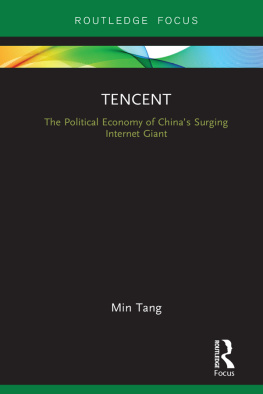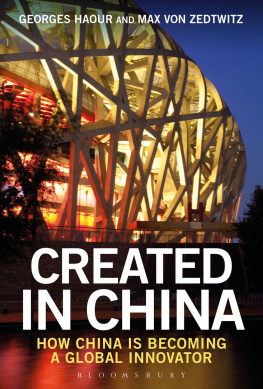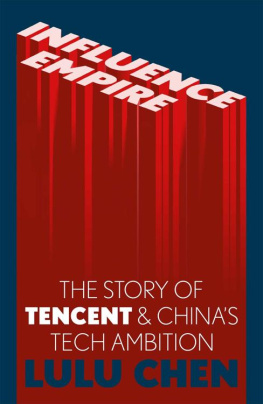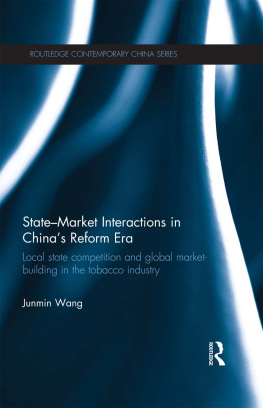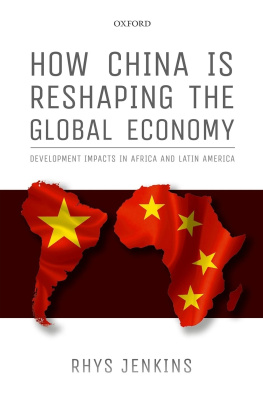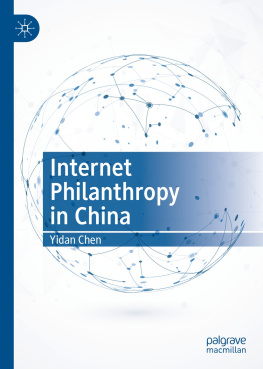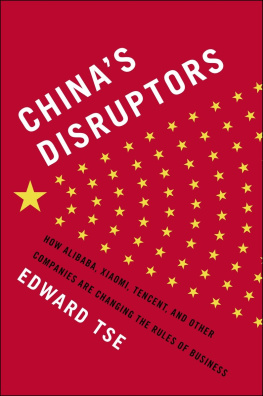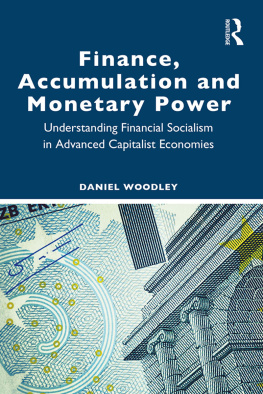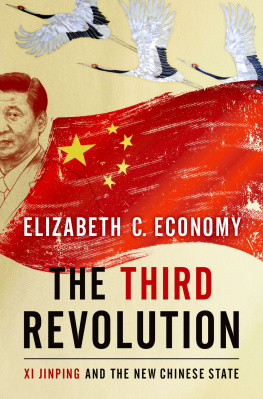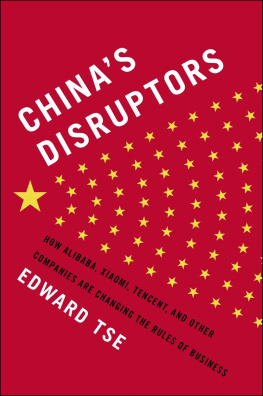Tencent
In this book, author Min Tang examines the political economy of the China-based leading global Internet giant, Tencent. Tracing the historical context and shaping forces, the book illuminates Tencents emergence as a joint creation of the Chinese state and transnational financial capital.
Tencent reveals interweaving axes of power on different levels, particularly interactions between the global digital industry and contemporary China. The expansion strategies Tencent has employedhorizontal and vertical integration, diversification and transnationalizationspeak to the intrinsic trends of capitalist reproduction and the consistent features of the political economy of communications. The book also pinpoints two emerging and entangling trendstransnationalization and financializationas unfolding trajectories of the global political economy.
Understanding Tencents dynamics of growth helps to clarify the complex nature of Chinas contemporary transformation and the multifaceted characteristics of its increasingly globalized Internet industry. This short and highly topical research volume is perfect for students and scholars of global media; political economy; and Chinese business, media and communication, and society.
Min Tang is a lecturer in Media and Communication Studies and Global Studies at the School of Interdisciplinary Arts and Sciences, University of Washington Bothell. She holds a Ph.D. in communication from the University of Illinois at Urbana-Champaign. A critical political economy scholar, she studies how capitalist relations and power structures shape the provision system of communication and information in our society. Her current work examines information communication technologies (ICTs) as emerging sites of capitalist reproduction, with a focus on the Internet industry in China and the broadly defined Global South regions.
Global Media Giants
Series editors: Benjamin J. Birkinbine, Rodrigo Gomez and Janet Wasko
Since the second half of the 20th century, the significance of media corporate power has been increasing in different and complex ways around the world; the power of these companies in political, symbolic and economic terms has been a global issue and concern. In the 21st century, understanding media corporations is essential to understanding the political, economic and socio-cultural dimensions of our contemporary societies.
The Global Media Giants series will continue the work that began in the series editors book Global Media Giants, providing detailed examinations of the largest and most powerful media corporations in the world.
Alphabet
The Becoming of Google
Micky Lee
Tencent
The Political Economy of Chinas Surging Internet Giant
Min Tang
For more information about this series, please visit: www.routledge.com/Global-Media-Giants/book-series/GMG
Tencent
The Political Economy of Chinas Surging Internet Giant
Min Tang

First published 2020
by Routledge
52 Vanderbilt Avenue, New York, NY 10017
and by Routledge
2 Park Square, Milton Park, Abingdon, Oxon, OX14 4RN
Routledge is an imprint of the Taylor & Francis Group, an informa business
2020 Taylor & Francis
The right of Min Tang to be identified as author of this work has been asserted by her in accordance with sections 77 and 78 of the Copyright, Designs and Patents Act 1988.
All rights reserved. No part of this book may be reprinted or reproduced or utilised in any form or by any electronic, mechanical, or other means, now known or hereafter invented, including photocopying and recording, or in any information storage or retrieval system, without permission in writing from the publishers.
Trademark notice: Product or corporate names may be trademarks or registered trademarks, and are used only for identification and explanation without intent to infringe.
Library of Congress Cataloging-in-Publication Data
A catalog record for this book has been requested
ISBN: 978-0-367-19508-3 (hbk)
ISBN: 978-0-429-20289-6 (ebk)
Typeset in Times New Roman
by Apex CoVantage, LLC
To my mom and dad, Liu Huanxiu and Tang Xinfeng, whose aspirations and endeavors for a loving and beautiful world have made me who I am.
Contents
CNNIC | China Internet Network Information Center |
FDI | foreign direct investment |
ICT | information and communication technology |
IM | Instant Messaging |
IPO | initial public offering |
IVAS | Internet value-added service |
MEI | Ministry of Electronics Industry |
MIH | Myriad International Holdings |
MII | Ministry of Information Industry |
MIIT | Ministry of Industry and Information Technology |
MMOG | Massive Multiplayer Online Game |
MPT | Ministry of Posts and Telecommunications |
MVAS | mobile and telecommunications value-added service |
PCCW | Pacific Century CyberWorks |
SEZ | special economic zone |
VAS | value-added service |
VC | venture capital |
VIE | variable interest entity |
This book, developed out of my doctoral dissertation, would not have been possible without the mentorship of Dan Schiller. It is such a fortune and luxury to have learned from and worked with Dan. A million times I came out of our conversations feeling energized, enlightened, and recharged. I have also benefited enormously from Robert McChesneys insightful and encouraging guidance. Susan Davis and Yuezhi Zhao are true role models. I admire and will always look up to their upbeat attitudes to scholarship and life.
I am deeply indebted to my dear teachers, colleagues, and friends from the University of Illinois community whose kindness and care carried me through the five-year Ph.D. journey in the Midwestern town of Urbana. I am also lucky to have a political-economy intellectual community across time and space. My special thanks go to Yu Hong, Chunfeng Lin, Xinyu Lu, Bingchun Meng, Hong Shen, and Changchang Wu. Wherever they are their passion, talent, hard work, and friendship would always motivate me to be a fearless critical scholar.
I am grateful for the generous support and nourishment from the School of Interdisciplinary Arts and Sciences at the University of Washington Bothell. I thank Lauren Berliner, Peter Brooks, Bruce Burgett, Ben Gardner, Kristin Gustafson, Susan Harewood, Bill Humphreys, Alka Kurian, Julie Shayne, Mira Shimabukuro, Ana Thompson, Deirdre Vinyard, and Simone Willynck for being great colleagues, mentors, and friends since I joined the IAS family.
I also express my gratitude to Benjamin J. Birkinbine, Rodrigo Gomez, and Janet Wasko, the series editors of Global Media Giants, for inviting me to participate in this project. Erica Wetter and Emma Sherriff, Routledge publishing assistants, have provided great help. I appreciate Mary Lou Kowaleskis consistent copyediting assistance.

